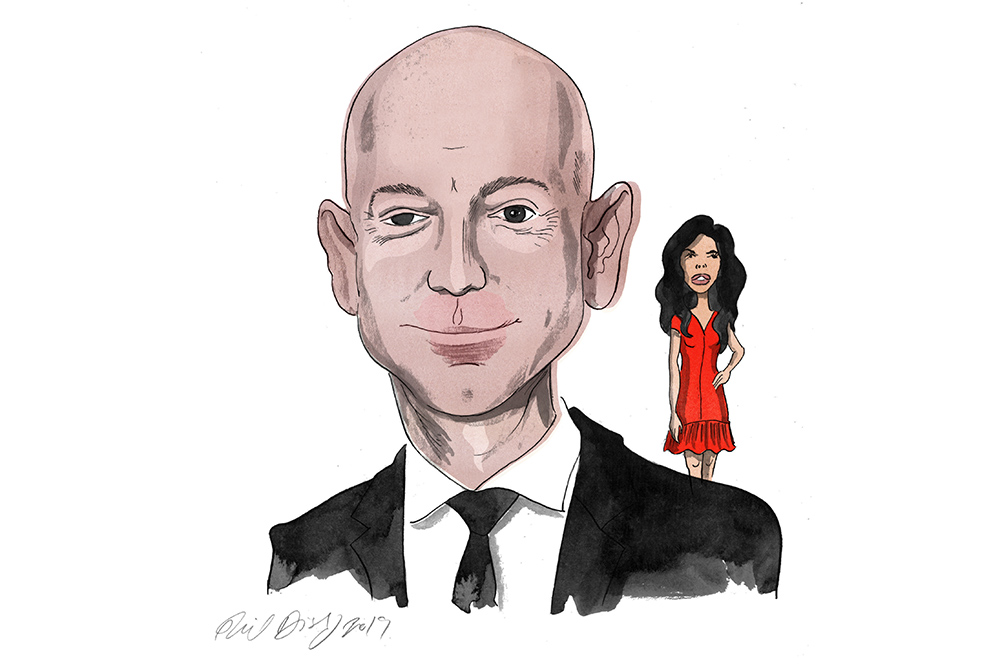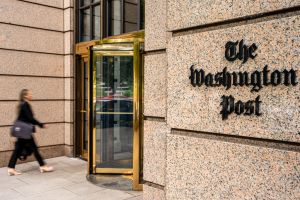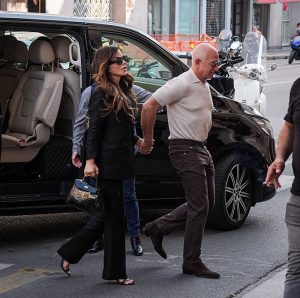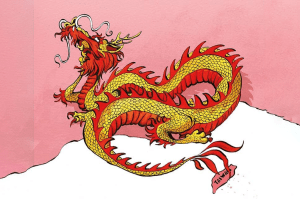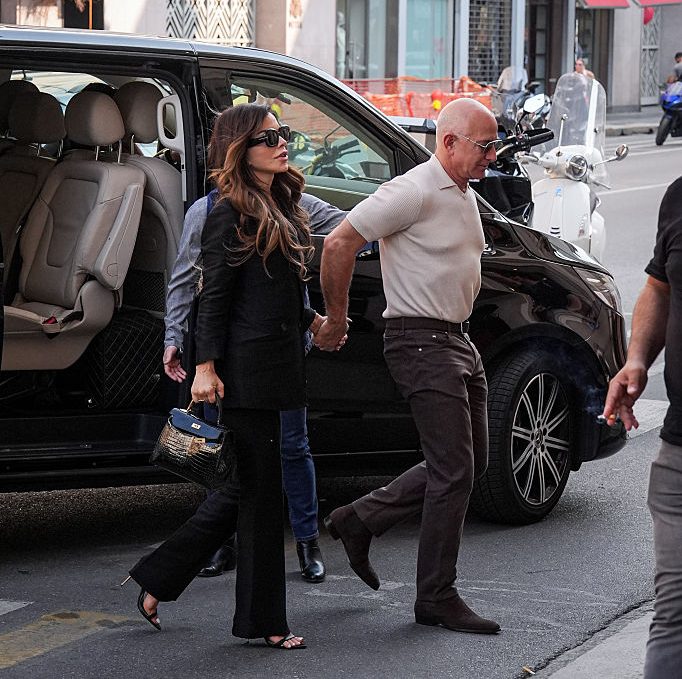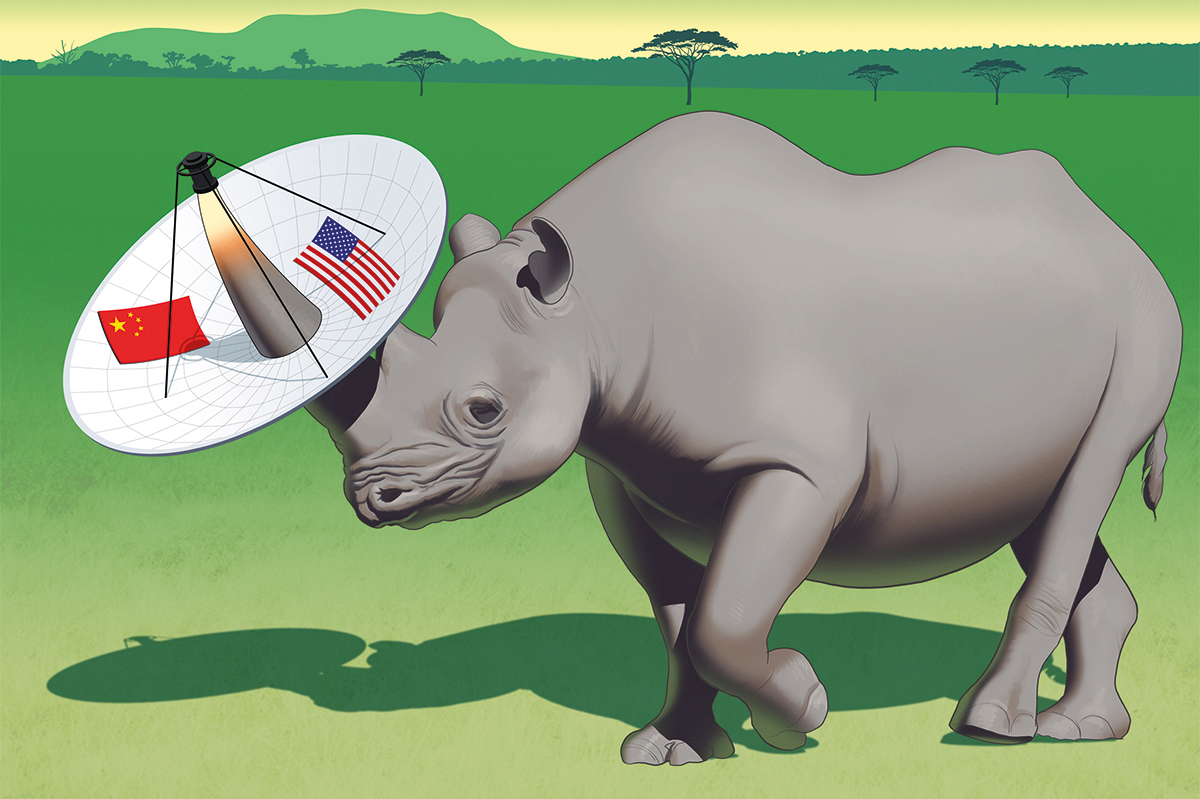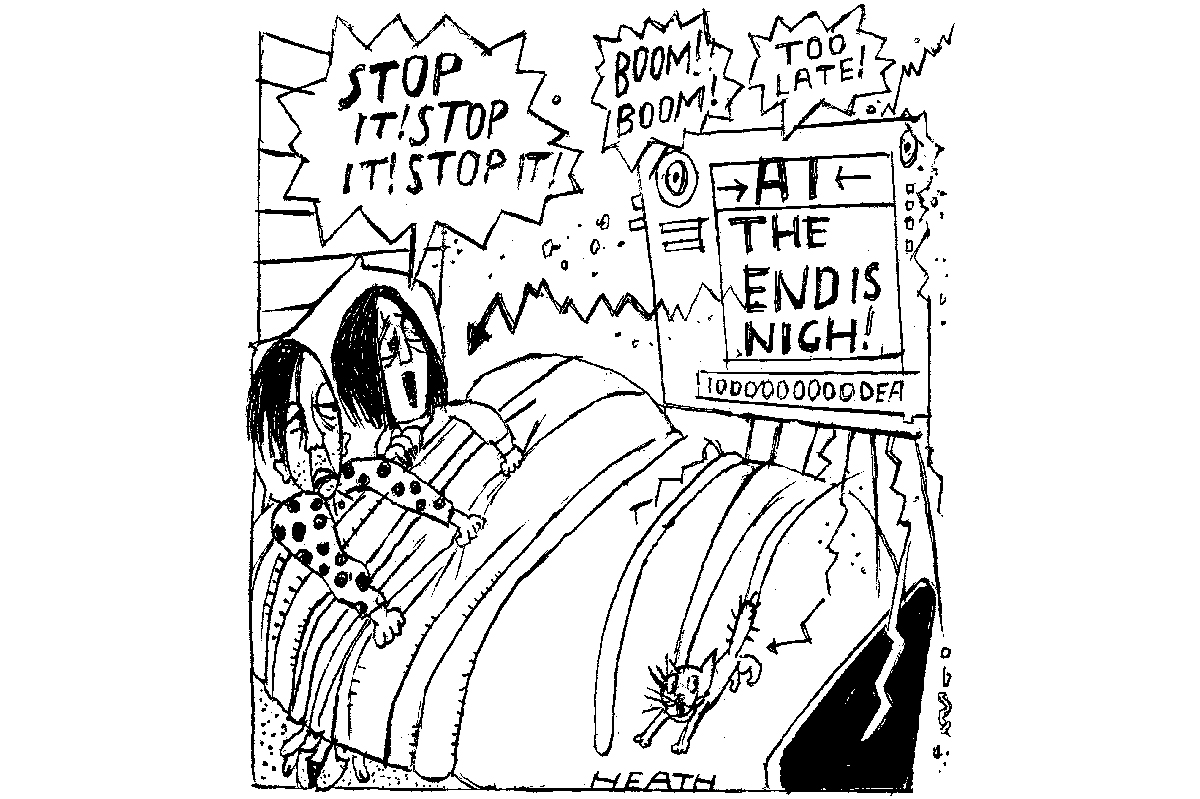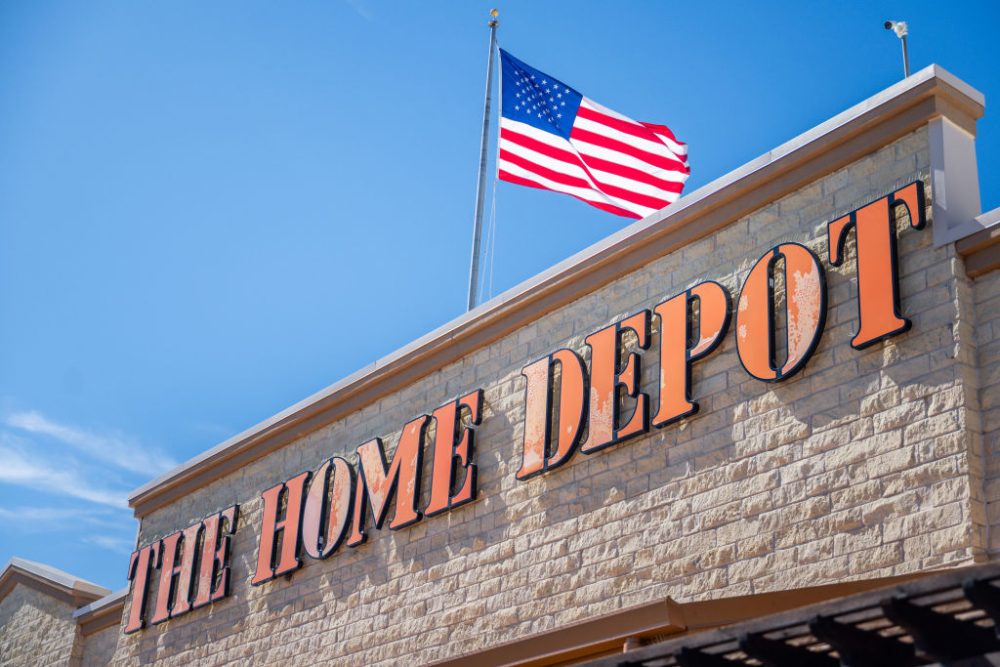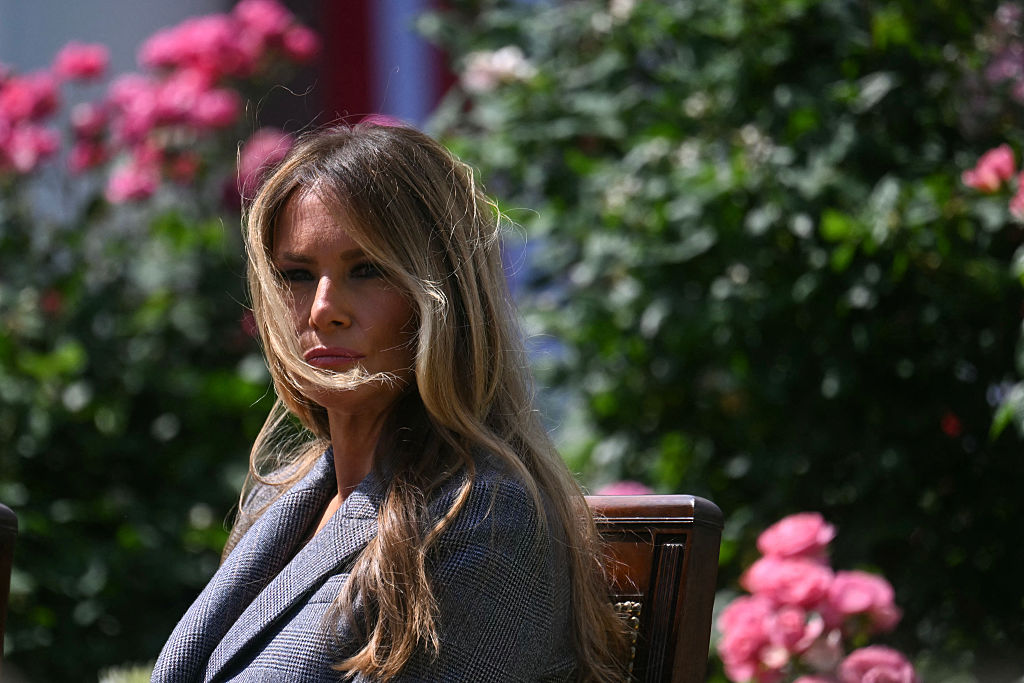It is tempting to view the blow-up between Amazon’s billionaire owner Jeff Bezos and David Pecker, publisher of the National Enquirer, with the peculiar glee some journalists experience when they cover a natural disaster: it can be exciting, fun even, to sit back and observe the flames.
As political earthquakes go, the Bezos-Pecker face-off is spectacular, since Pecker is a long-time ally of Donald Trump and Trump is the sworn enemy of Bezos and the newspaper he owns, the Washington Post. Trump calls him ‘Jeff Bozo’, presumably because the Post has been so aggressive in its coverage of Trump’s alleged collusion with Russia and seems determined to bring down his presidency. When the Enquirer published an exposé of Bezos’s affair with TV personality Lauren Sanchez, it seemed reasonable to speculate that Pecker’s scandal sheet had acted on behalf of the White House.
However, things might be more complicated, since last summer Pecker’s company, American Media Inc, agreed to cooperate with federal prosecutors in New York in their investigation of hush money paid by Trump’s lawyer, Michael Cohen, to a former Playboy model who claimed she had had an affair with Trump. The President likely considered Pecker’s cooperation a betrayal. Former Enquirer bureau chief Jerry George thinks his former boss was trying to ‘make amends and brought this divorce story to the President as a means of kissing and making up’.
It is possible that the Enquirer thought it was a good story regardless of Pecker’s relationship with Trump: ‘Bezos… has been whisking his mistress off to exotic destinations on his $65 million private jet, sending her raunchy messages and erotic selfies — including one steamy picture too explicit to print here.’ And for what it’s worth, Bezos didn’t deny anything. But last week he hit back, accusing the Enquirer of ‘extortion and blackmail’. He claims that the paper’s executives threatened to publish some more even more raunchy selfies unless Bezos stated that he ‘had no knowledge or basis for suggesting’ the Enquirer’s original exposé was ‘politically motivated’.
Normally, celebrity bloodletting of this sort would not be worth discussing. But this feud is different, since Bezos is self-righteously posing as the virtuous and aggrieved party — a champion of quality journalism and the First Amendment besieged by a scandal sheet and a villainous politician bent on petty revenge. More importantly, the Bezos-Pecker battle underscores the hypocrisy of a liberal establishment so enraged at the thug in the White House that it’s willing to side with a ruthless monopolist whose success is built largely on the destruction of book publishers, authors and booksellers – the very infrastructure of American liberalism that Bezos purports to represent.
Before Amazon became the ‘Everything Store’, it was an online bookseller. Bezos recognized that slow-moving bookstores could be beaten online by speed of delivery and heavy discounting. Amazon’s cut-rate offerings frequently amount to predatory pricing, a practice that is supposed to be illegal because it’s calculated to kill off competitors. But since the administration of Ronald Reagan, antitrust doctrine has shifted to favor low prices in place of the older doctrine that defended consumer choice and the democracy of the market place by restraining a single company’s excessive power. The result has been a virtual takeover of the bookselling business by Amazon, causing the few remaining publishers to grovel and the booksellers to die or scramble for survival.
Amazon can now dictate to a publisher how many copies of a book it will print and at what wholesale price it will buy it. To what extent this occurs is a secret, but it’s safe to say the ‘negotiation’ isn’t the give-and-take one finds at a wholesale fish market.
Such overwhelming market control has had a malignant effect on publishing. Squeezed by Amazon, the big five US publishers are squeezing authors as never before. The latest Authors Guild income survey found that median annual author income from writing in 2017 had fallen to its lowest recorded level, $6,080, down 42 percent since 2009. Meanwhile, Amazon’s share of total book sales in print has reached nearly 50 percent and is growing, while market share at the one surviving national US chain, Barnes & Noble, is shrinking. A much-publicized ‘revival’ of independent bookstores has been grossly exaggerated.
If Bezos were just a modern-day John D. Rockefeller, he wouldn’t be quite so appalling. It is reprehensible that he’s wrecking the retail landscape with his below-cost pricing and that he underpays his warehouse workers. But worse, Bezos pretends he’s a liberal only in order to seduce liberals, whereas Rockefeller, when he was driving out competitors in the oil business, never pretended to be a nice guy.
In July 2013, when President Obama christened the new Amazon warehouse in Chattanooga, it was the surest
sign of liberal approval that Bezos’s money could buy. His purchase of the Washington Post soon after served two purposes: to intimidate politicians and regulators who might move to restrict his business practices, and to launch a campaign aligning himself with liberal causes supported by Hollywood, Wall Street and various NGOs.
How bad could he be if he donated money to National Public Radio and the Reporters Committee for Freedom of the Press? Liberals hardly notice that Bezos’s political ideology is capitalist-libertarian and aligns with his worldwide avoidance of taxes. It is no doubt reassuring to see him at the Academy Awards hobnobbing with his fellow movie producers and politically correct actors, who congratulate themselves on how much they hate Trump and how much
they love the Post’s anti-Trump reporting.
I think the Post is a pretty good newspaper, thanks to its editor, Marty Baron. But it is not a great newspaper or a particularly fair one, as evidenced by its relentless attacks on Bernie Sanders’s 2016 presidential campaign. In any event, it would be foolish to pick a side, although Bezos knows what he’s talking about when he cries extortion. Just ask any book publisher. But so far the liberal media is reflexively backing Bezos against Trump and Pecker.
The Washington Post’s $10.5 million vanity ad during the Super Bowl extolling the importance of a free press won plaudits. Bezos is seen as a hero of the ‘Trump Resistance’. In the admirable minority was Politico’s media columnist, Jack Shafer, who called the commercial ‘a PR stunt’ and questioned whether the money wouldn’t have been better spent on hiring reporters.
I am a liberal publisher, but Bezos’s Super Bowl ad — an unexceptional collection of clichéd slogans and images — was the last straw in my increasingly uneasy relationship with many of my liberal, Trump-obsessed brethren. For years I’ve served on the US board of the press freedom group Reporters Without Borders, but reading my fellow board members’ online praise for the commercial (‘really beautiful tribute to journalism’) was more than I could bear, so I resigned. Not so much on principle as to keep my sanity.
This article was originally published in The Spectator magazine.



